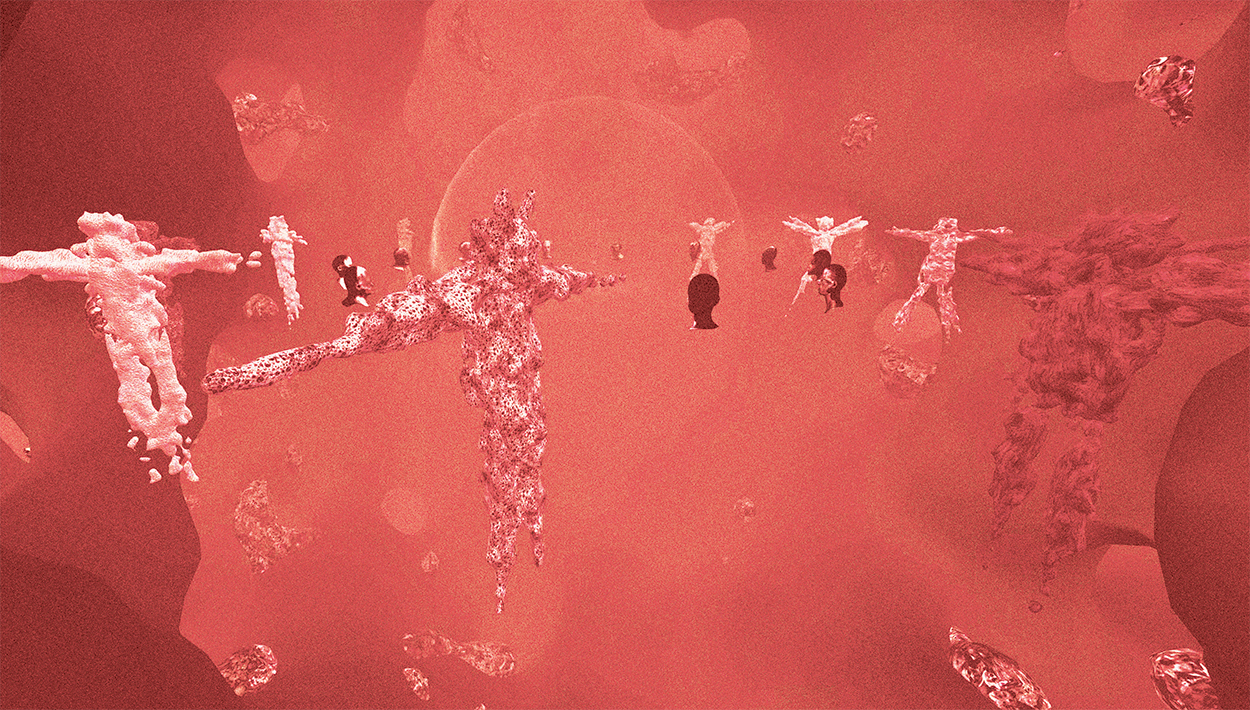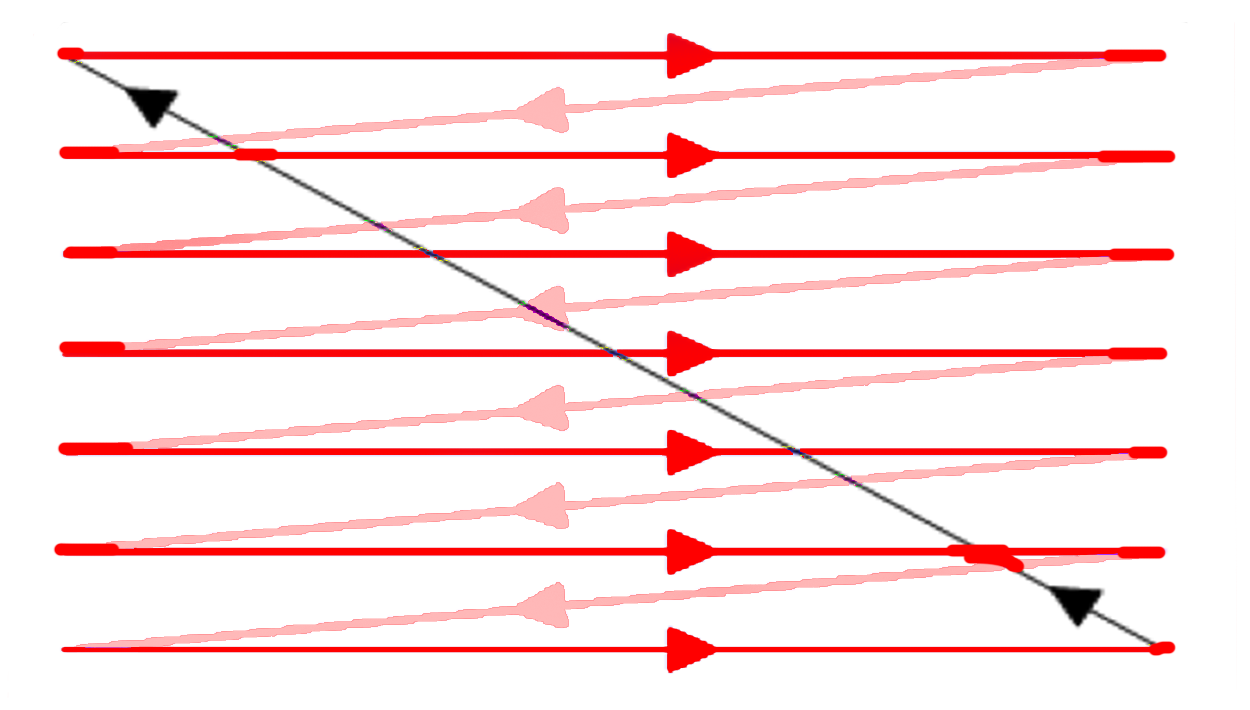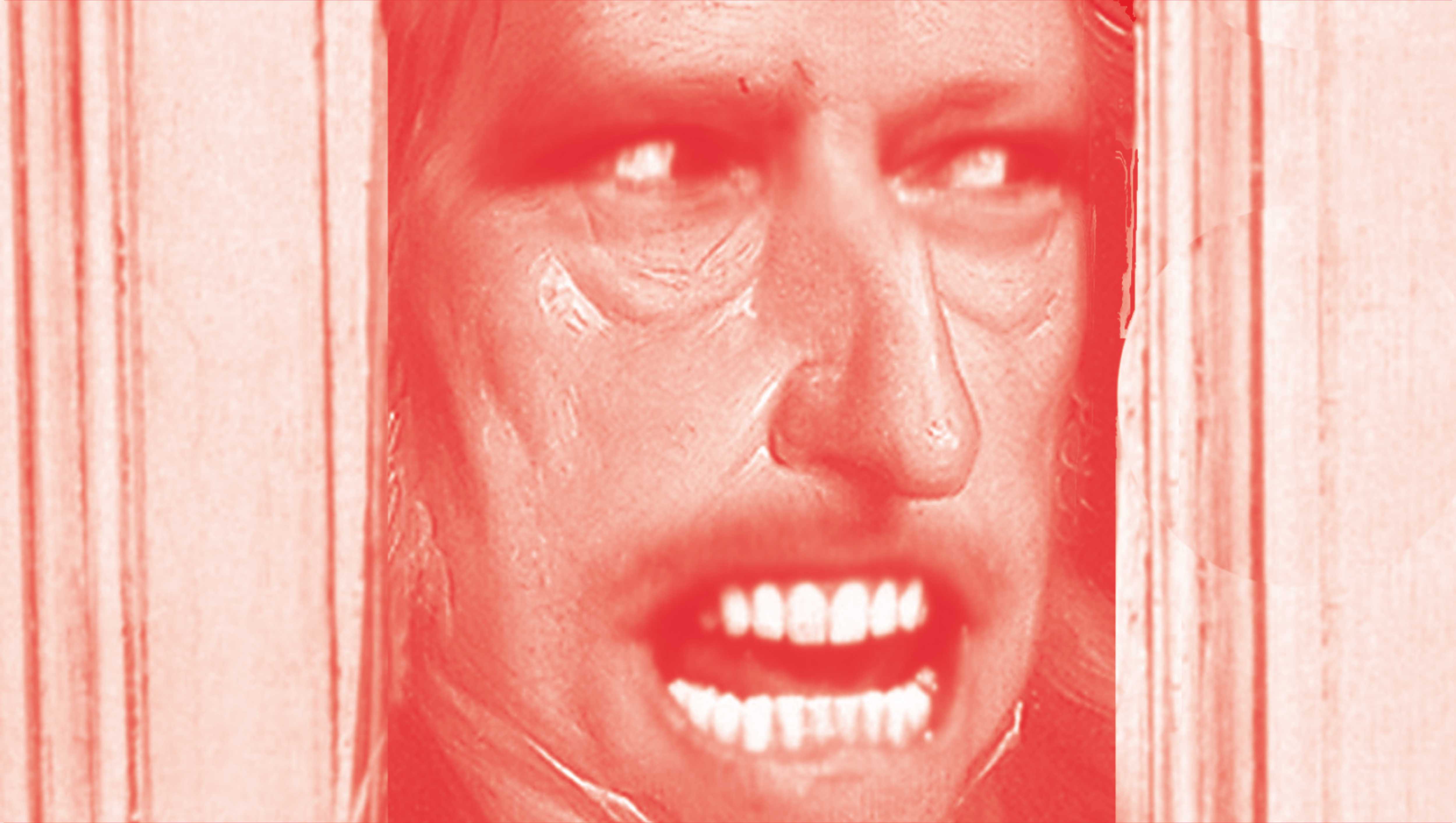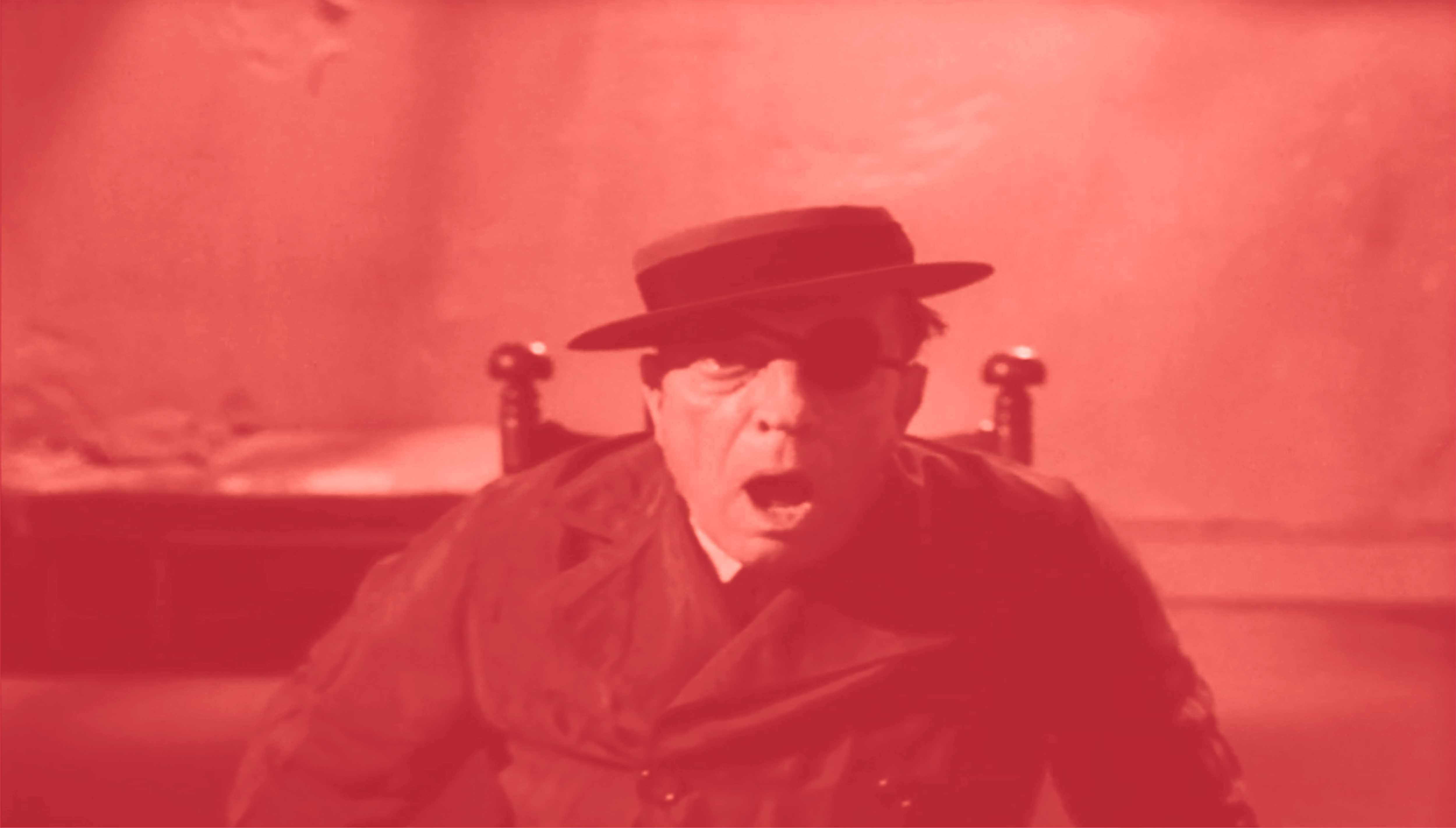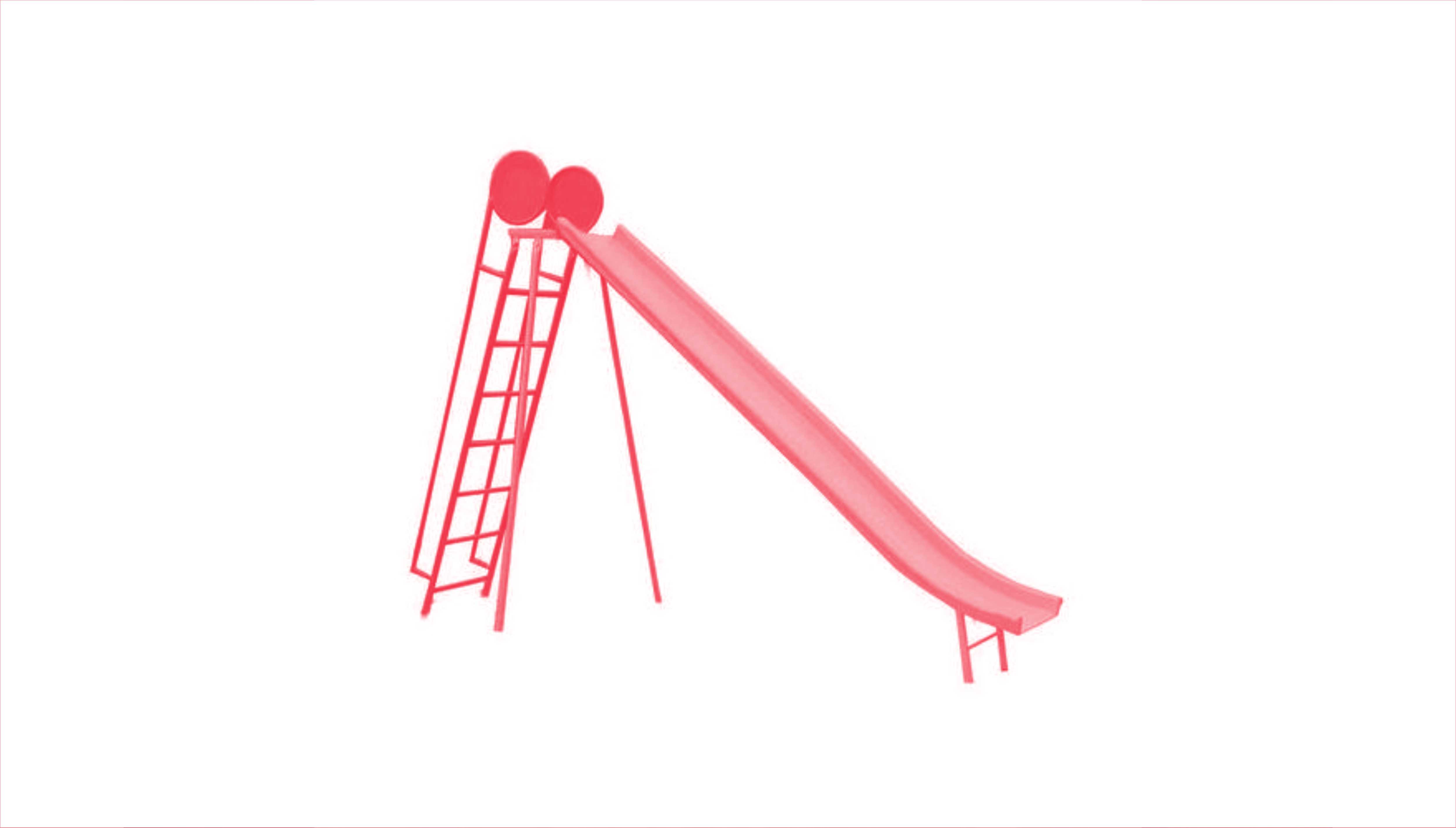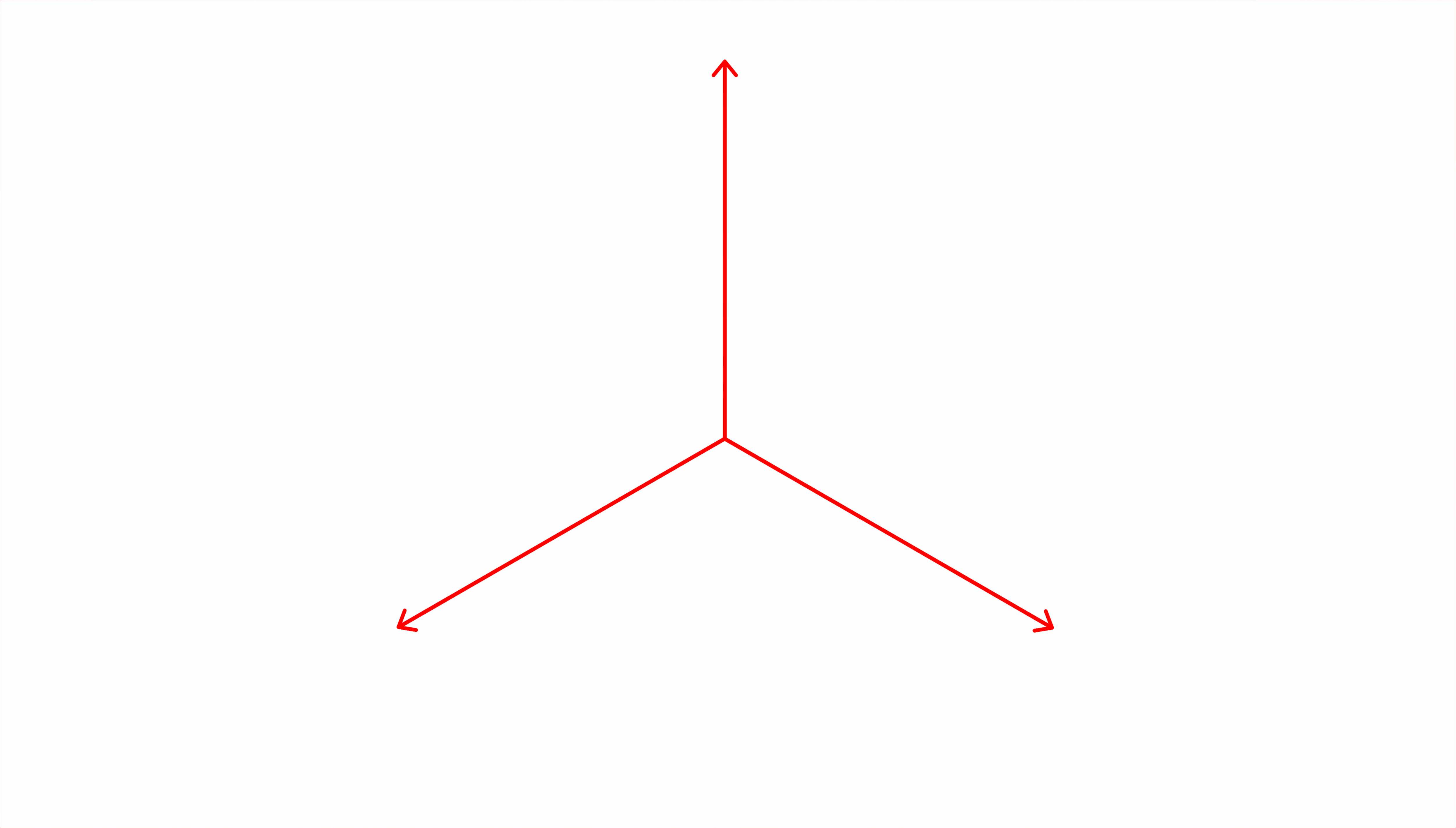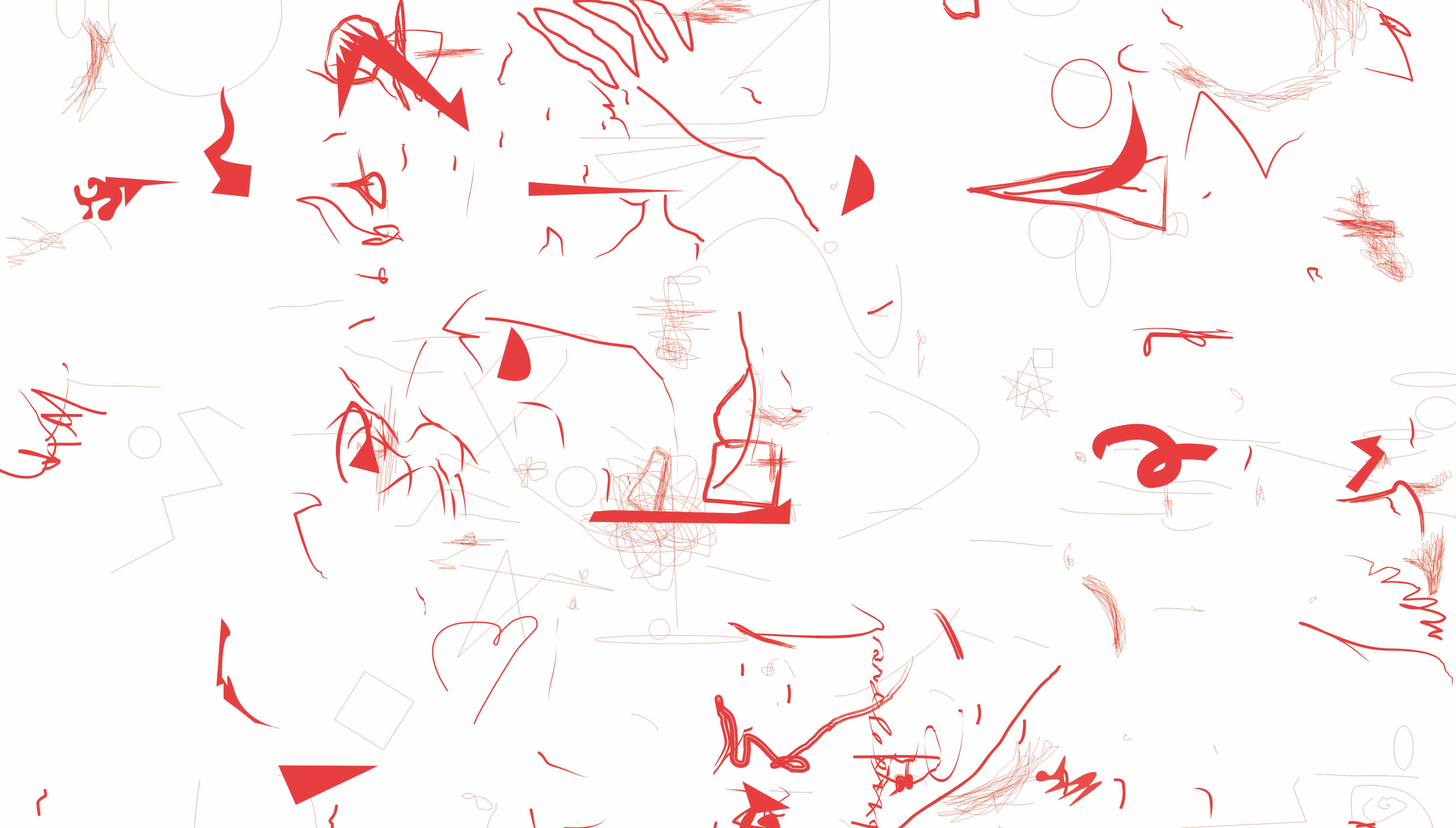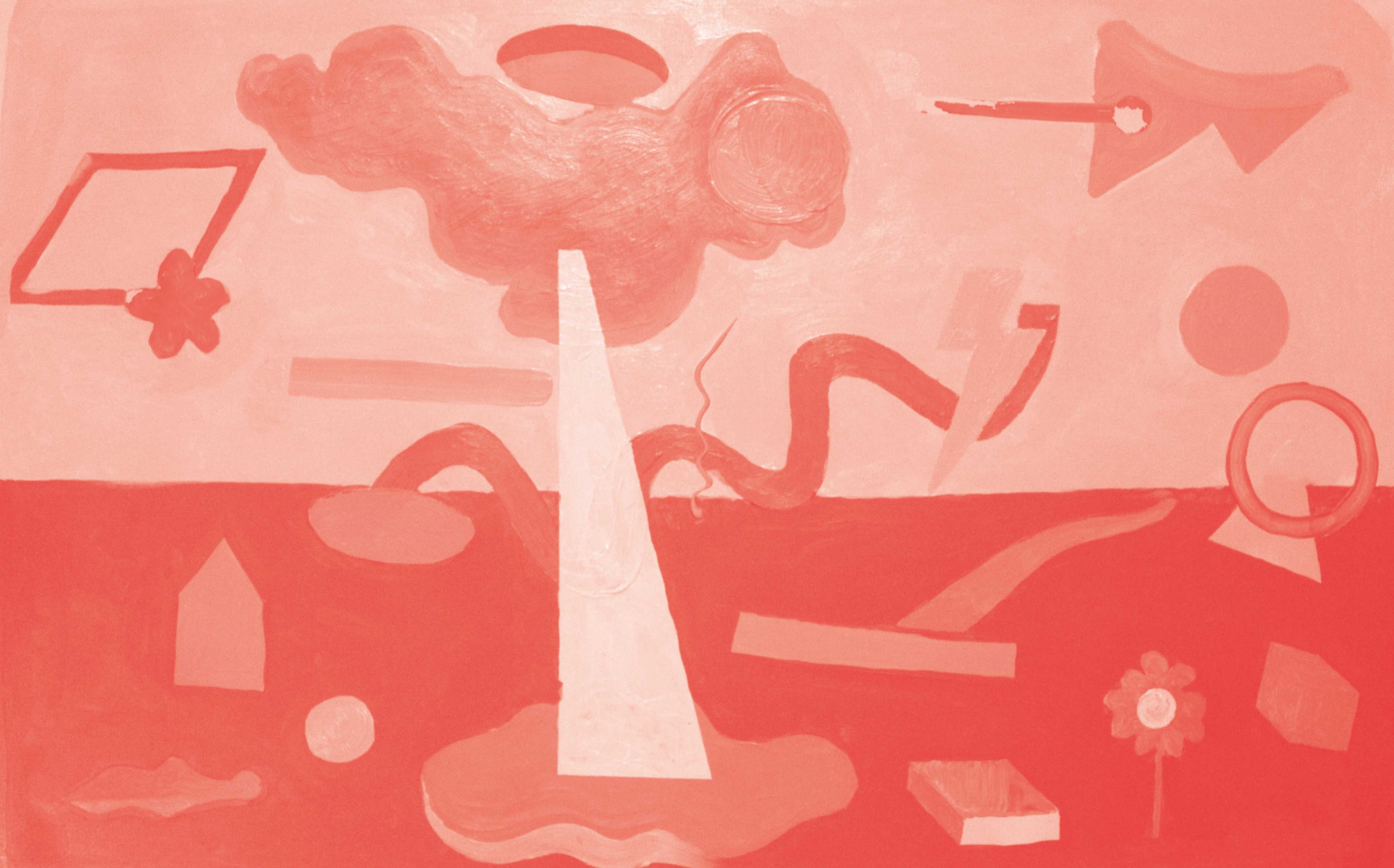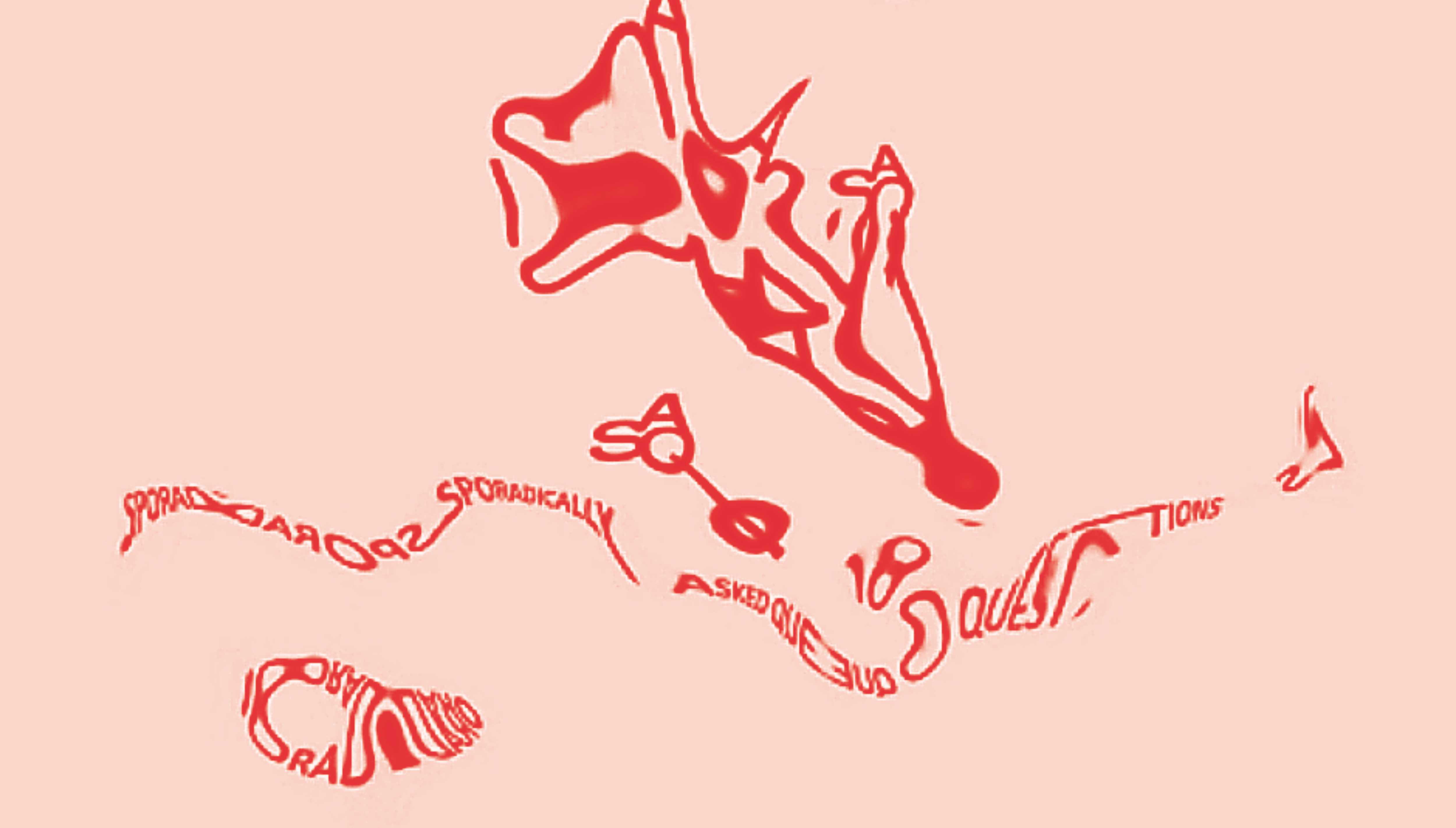The Glitch
[2018]︎︎︎ Digital drawings, 5 (A4 size) accompanied with a 1000 word story narrative - supposedly a fairytale.
︎︎︎ ‘The Glitch’ was a collaborative project, a group entry into the Fairy Tales 2018 competition by Blank Space.
︎︎︎ Team: Prashant Chavan, Aseem Deuskar, Vinit Dharia, Aditya Mandlik, Rewa Phansalkar.
A particular figure of ‘the Architect’ enters into a low income class housing building in a working class Neighbourhood. All hell breaks loose, as the Architect performs the task he is meant to.
The City was a collection of things, a
place of either great freedom or a marked absence of sense. Its apparent
diversity was seemingly unorganized, but operational nonetheless. Its
inhabitants were strangers working together, shaping it through daily transactions.
Buildings in the city were containers of its living fragments, paradoxical in
their ability to remain static through time, even as their occupants constantly
changed them.
The building called B-17 was one such container. It looked like buildings that ware-housed labor were meant to look. Its occupants were the working class: they dressed and spoke accordingly, members of a community that looked alike, did alike, felt alike. Like its occupants, the building was ordinary too.
The building called B-17 was one such container. It looked like buildings that ware-housed labor were meant to look. Its occupants were the working class: they dressed and spoke accordingly, members of a community that looked alike, did alike, felt alike. Like its occupants, the building was ordinary too.
There were steps to climb
up and down in the front, followed by crumbling identical cells that were
linearly arranged, which would repeat and repeat up to detached communal
toilets and bath. Along the seemingly unending central passage, creaky doors
faced each other, as meagre windows within, looked outward to the city. There
were balconies, bells and broken chimneys and a clock on the façade that hadn’t
kept time since time immemorial.
The blind eye of the broken clock gazed upon the outsider on the street, as he looked back at B-17. He folded out a tear-stained piece of paper. ‘B-17/29’ the paper said. His refuge. The Gentleman hurried on.
He passed the street-facing stilts that allowed the informal encroachment, went up the staircase which carried casual strollers. Upstairs, a doubly loaded wide corridor, that allowed opportunistic interactions, hosted playing children. He ducked under the dull polka-dot dresses and pinstriped shirts that hung from ropes tied along the long length that the passage offered. Neither did he see the detached toilet and the queue of chatting men that it had collected outside it, nor the voyeurs gazing out of tiny windows into proximate openings of the adjacent building. The privacy of the closed doors masked sights of domestic disorder and hushed love-making, but not the smells of incense and flatulence that wafted out. He paid no attention to the cripple who leaned against the broken railings, and the bottle of old monk lying outside the door of a cell, which could very well be the modern abode of the mountain hermit. He walked past all these things to the locked room, the one that was never used, which no one entered.
Opening the door, he caught the first glimpse of the space inside. “It isn’t quite right, that room,” said a voice behind him. It was a hunched old man, who looked as broken as everything else. “It has the remnants of a mistake. It doesn’t let anything happen.” The outsider regarded room 29. It was like the others, but for a large wall that ran diagonally across its center, breaking its orthogonal geometry into two unequal halves. The room could not be used because of the wall. He wondered whose mistake it was.
He had to take it apart, he was certain. He pulled out a large hammer from his satchel, and struck the wall with all his might. As a jagged crack ran up the mortar joints and the first broken bricks crashed to the ground, it was as if the whole building reverberated with the sound. The Outsider hammered away, oblivious to the outside, where something was happening. B-17’s static architecture was slowly defying the breakage, as walls and columns grew in passages and stairways, in cells and toilets, breaking and blocking in all ways and directions. When an oblique pier pierced through his door, the Gentleman paused hammering and took notice. A weird accident certainly, but breaking the wall was important. He struck another blow.
The blind eye of the broken clock gazed upon the outsider on the street, as he looked back at B-17. He folded out a tear-stained piece of paper. ‘B-17/29’ the paper said. His refuge. The Gentleman hurried on.
He passed the street-facing stilts that allowed the informal encroachment, went up the staircase which carried casual strollers. Upstairs, a doubly loaded wide corridor, that allowed opportunistic interactions, hosted playing children. He ducked under the dull polka-dot dresses and pinstriped shirts that hung from ropes tied along the long length that the passage offered. Neither did he see the detached toilet and the queue of chatting men that it had collected outside it, nor the voyeurs gazing out of tiny windows into proximate openings of the adjacent building. The privacy of the closed doors masked sights of domestic disorder and hushed love-making, but not the smells of incense and flatulence that wafted out. He paid no attention to the cripple who leaned against the broken railings, and the bottle of old monk lying outside the door of a cell, which could very well be the modern abode of the mountain hermit. He walked past all these things to the locked room, the one that was never used, which no one entered.
Opening the door, he caught the first glimpse of the space inside. “It isn’t quite right, that room,” said a voice behind him. It was a hunched old man, who looked as broken as everything else. “It has the remnants of a mistake. It doesn’t let anything happen.” The outsider regarded room 29. It was like the others, but for a large wall that ran diagonally across its center, breaking its orthogonal geometry into two unequal halves. The room could not be used because of the wall. He wondered whose mistake it was.
He had to take it apart, he was certain. He pulled out a large hammer from his satchel, and struck the wall with all his might. As a jagged crack ran up the mortar joints and the first broken bricks crashed to the ground, it was as if the whole building reverberated with the sound. The Outsider hammered away, oblivious to the outside, where something was happening. B-17’s static architecture was slowly defying the breakage, as walls and columns grew in passages and stairways, in cells and toilets, breaking and blocking in all ways and directions. When an oblique pier pierced through his door, the Gentleman paused hammering and took notice. A weird accident certainly, but breaking the wall was important. He struck another blow.
It was then that the incident happened. Ripples of distortion rose from the very foundations of B-17, and engulfed it entirely. Its familiar elements crumbled, parts of its stark geometry liquefied to fluid forms and melting balconies dripped onto the street below. The staircase twisted upon itself into a distorted knot, the passages stretched like rubber pulled by invisible hands. A fissure ran along B-17’s midsection, splitting it into two, blurring the in and out. Pixelated windows let in desaturated light, cells left their places and rose against gravity, the railings multiplied a thousand times. Columns shifted from their place. Squares and rectangles became smudges and fragments, the cardinal axes broke down along with space, sense and orientation. Architecture had come unraveled, as if resulting in a glitch. On what used to be the front façade once upon-a-time, the broken clock ticked to twelve, for the first time in living history.
Uncertain, the gentleman rushed out. The inhabitants of B-17 were left stirred as their habitat transformed. Casual strollers were trapped in the Mobius staircase, going up and down in loops, unable to exit at the shut-off landings. In the passages, a small crowd had gathered to watch a levitating cell, pointing excitedly. Doors had shifted, leaving openings askew, mildly annoying chatting aunties. Unsuspecting people had started spilling to the ground at the central fissure, as passers-by marvelled at the spectacle of the melting balconies. All shutters had shattered: lust, vice and violence were all exposed. A wall of preposterous proportions had blocked the way to the toilets, leaving chatty men stranded on the bridge. There had to be an explanation! It must have been an earthquake. Perhaps, the bachelors had partied too hard. Surely, there was an issue with the plumbing. Only the old man offered no opinion, he knew there was no point. “Each explanation is more ludicrous than the other!” the Gentleman lamented. Was it he who was to blame?
It was a fault,
accident, malfunction, absurdity. Would sanity ever return? The next morning he
found that his cell was now in the attic, at the edge of the fissure. His
vantage allowed a god’s eye view of all that
was going on. While going about breakfast, he overheard many accounts of
strange events. The toilet-goers had given up on waiting, people stood peeing
against the wall, squatting against it, and even installing WC’s
atop it. Ruined cells caused people to vacate, and moved to the corridors where
laundry ropes were now covered in trailing curtains, under which
people had reclaimed privacy. The handicap found supports to move with the multiplied railings, propped up ladders made way to the levitating cells from where the voyeurs could view the city much better. The people in the loopy staircase were having a wedding ceremony, now that they were to spend their lives together. The old man roamed about searching his walking stick.
People trapped in cells on the top floor were pulling in food from shops below, using baskets and an elaborate pulley mechanism. Life had found a way to transpire. As the days went by, inhabitants of B-17 settled to their surroundings.
people had reclaimed privacy. The handicap found supports to move with the multiplied railings, propped up ladders made way to the levitating cells from where the voyeurs could view the city much better. The people in the loopy staircase were having a wedding ceremony, now that they were to spend their lives together. The old man roamed about searching his walking stick.
People trapped in cells on the top floor were pulling in food from shops below, using baskets and an elaborate pulley mechanism. Life had found a way to transpire. As the days went by, inhabitants of B-17 settled to their surroundings.
Had this always been the way-of-life
in B-17? The
Gentleman stepped out of his room and watched. Surely, it was no longer his
building. Or perhaps, it was only his now. He recalled the grotesque event. But the fools had
forgotten, no one understood. Soon, they would have children, and the gentleman’s chaos would become their order, a
new normality. The
disorder and disorientation, the strange spaces and placid faces, it was too
much to bear. Defeated, he turned to go in, but his door had disappeared. “No!” He
began a slow search for his cell. Up and down the staircase, in and along the
corridor, he searched for home. Finally, he spotted it. Right in the centre of
the fissure, where it shouldn’t have been, was the
door with a small number ‘29’. Involuntarily, he
stepped inside. The yellow wall stared back at him. There were other things, a
wrist watch, a walking stick: rejected,
forgotten, unwanted, broken things.
Struck by pity, an overwhelming affection made him clasp the wall, as his fingers trailed its delicate joints and he breathed in its loose plaster. In a strange world with no bearing, it was an anchor of familiarity, the only object that he had had a real conversation with in this alien place. It was refuge that he came here for, it was with the wall that he belonged. The door shut behind him, never to open again..
Struck by pity, an overwhelming affection made him clasp the wall, as his fingers trailed its delicate joints and he breathed in its loose plaster. In a strange world with no bearing, it was an anchor of familiarity, the only object that he had had a real conversation with in this alien place. It was refuge that he came here for, it was with the wall that he belonged. The door shut behind him, never to open again..

